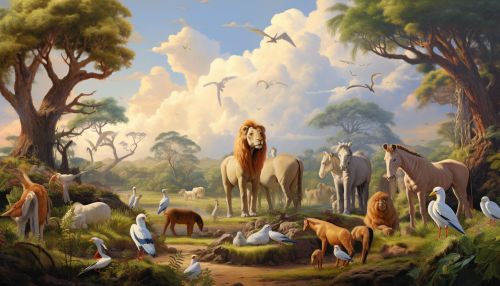Behavioral Ecology
Introduction
Behavioral ecology, also known as ethoecology, is a sub-discipline of ecology that focuses on the ecological and evolutionary basis for animal behavior. It seeks to explain why animals behave the way they do and how this behavior enhances their survival and reproductive success. Behavioral ecologists study the behavior of animals in their natural environments from an evolutionary perspective.


Evolutionary Basis of Behavior
Behavioral ecology is rooted in the principles of evolutionary biology. It is based on the premise that animal behavior is shaped by natural selection, just like physical traits. Animals that exhibit behaviors that enhance their survival and reproductive success are more likely to pass on their genes to the next generation.
The concept of fitness is central to behavioral ecology. Fitness refers to an individual's ability to survive and reproduce. Behaviors that increase an individual's fitness are favored by natural selection.
Optimal Foraging Theory
One of the key theories in behavioral ecology is the optimal foraging theory. This theory suggests that animals maximize their net energy intake per unit of time spent foraging. Animals that forage efficiently have more time and energy for other activities, such as reproduction and avoiding predators.
Life History Theory
Life history theory is another important concept in behavioral ecology. It examines the trade-offs that organisms face in allocating resources to growth, reproduction, and survival. For example, an organism might delay reproduction in favor of growth, or invest heavily in reproduction at the expense of its own survival.
Social Behavior
Behavioral ecology also studies social behavior in animals. Social behaviors are those that involve interaction between individuals, often of the same species. These behaviors can include cooperation, conflict, mating behavior, parental care, and group living.
Animal Communication
Communication is a critical aspect of animal behavior. Animals communicate for various reasons, such as to attract mates, warn of predators, or establish territory. The study of animal communication involves understanding the types of signals animals use, how these signals are perceived, and the evolutionary forces that shape these communication systems.
Human Behavioral Ecology
Human behavioral ecology (HBE) applies the principles of behavioral ecology to humans. HBE researchers study human behavior from an evolutionary perspective, examining how human behavior enhances survival and reproductive success.
Criticisms and Controversies
Like any scientific discipline, behavioral ecology has its share of criticisms and controversies. Some critics argue that behavioral ecology oversimplifies animal behavior by assuming that all behaviors are adaptive and shaped by natural selection. Others argue that behavioral ecology neglects the role of learning and culture in shaping animal behavior.
Conclusion
Behavioral ecology provides valuable insights into the behavior of animals, including humans. By understanding the ecological and evolutionary forces that shape behavior, we can better understand the natural world and our place in it.
